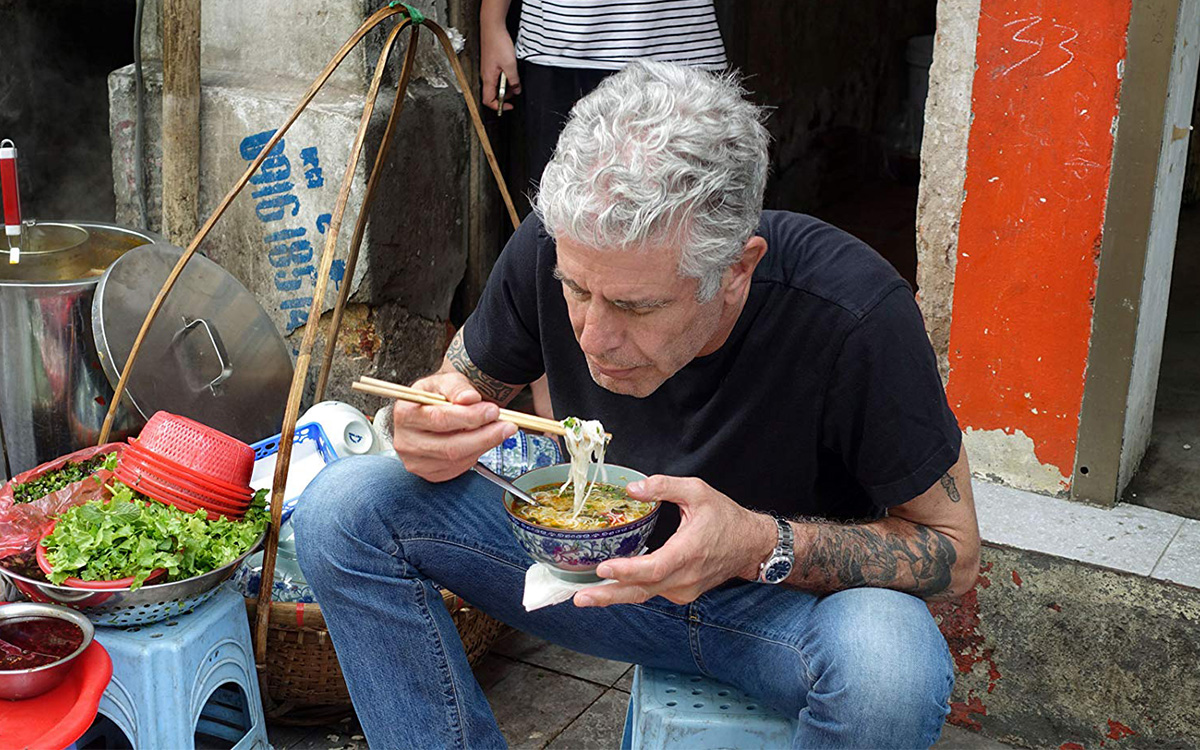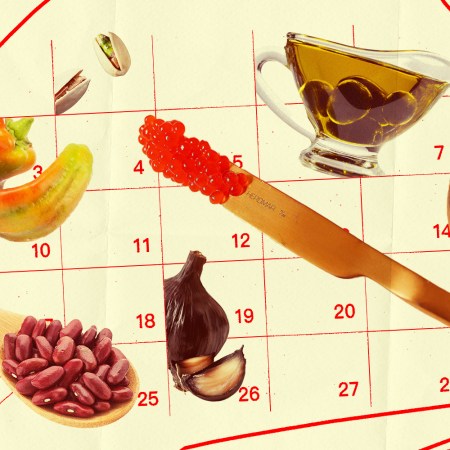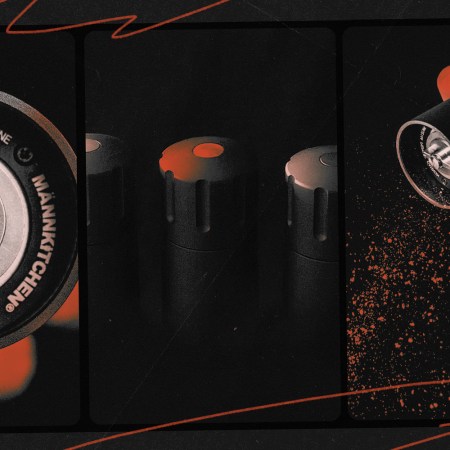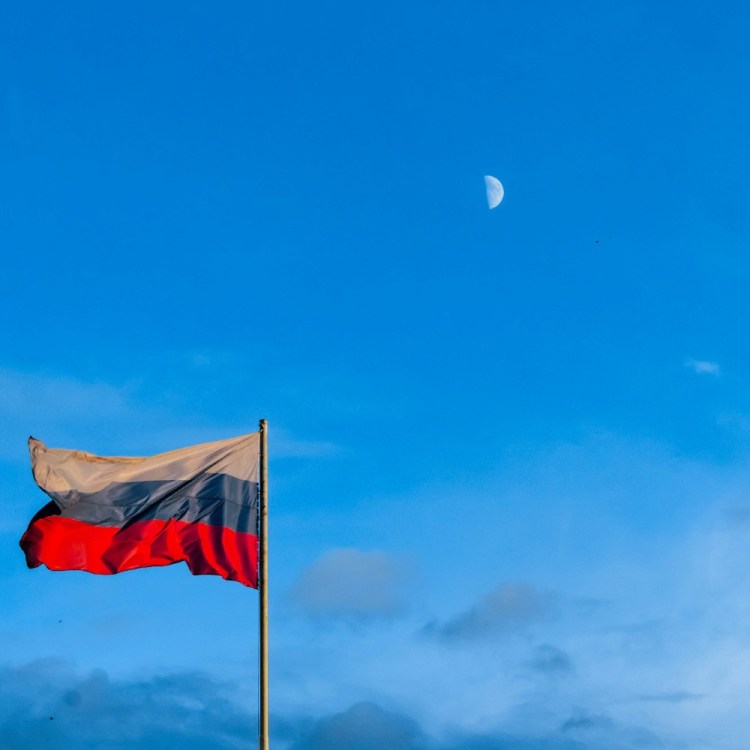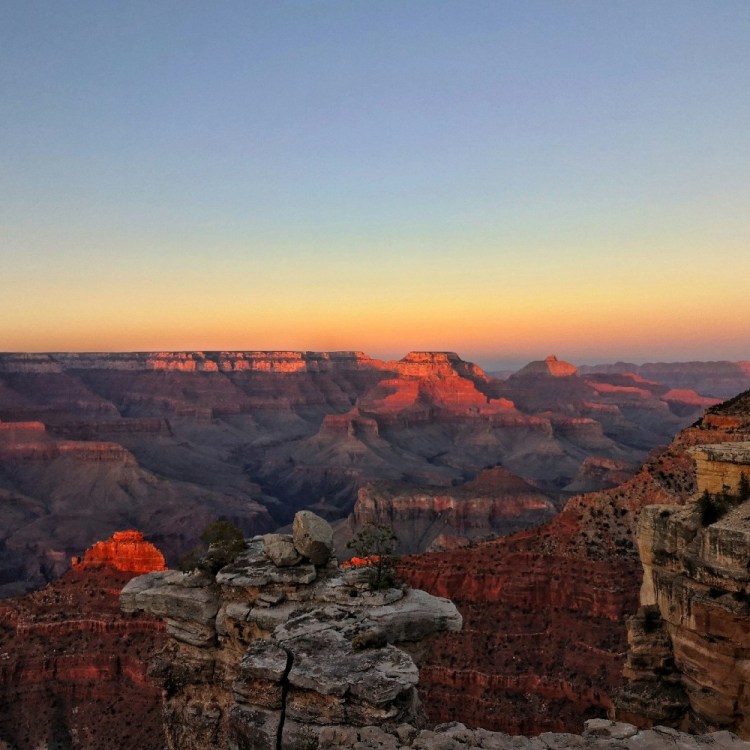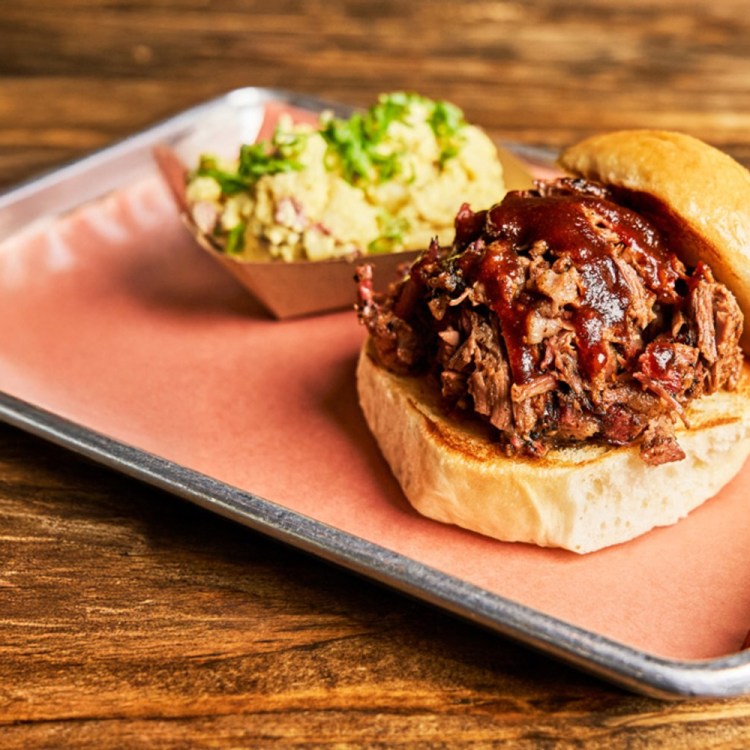This week, for what would have been his 62nd birthday, friends of Anthony Bourdain declared June 25 “Bourdain Day.” To celebrate, InsideHook will be publishing articles about the writer, chef and television host we all miss. In case you missed it, check out this piece on driving through New Jersey on the food trail dedicated to Bourdain, and stay tuned for more.
In the spring of 1999, Anthony Bourdain traveled to Japan. The bosses at his restaurant, Brasserie Les Halles, wanted him to bring some French bistro wisdom to the kitchen of their Japanese branch, Les Halles Tokyo, and shipped Bourdain out east for a week.
It is disorienting, in 2019, to read along as Bourdain recounts this unexpected business trip in his book Kitchen Confidential. He was forty-three at the time of writing, and still utterly concussed by his adventure. There’s a familiar swagger in his lilt, but it’s shaded with wide-eyed wonder at the opportunity, the process of getting there and Tokyo itself. Bourdain describes the assignment as “daunting and unusual,” and devotes a half page to his stress over the length of the flight:
“I scored some Valium before leaving for the airport, thinking maybe I could knock myself out … [but] I couldn’t find the damn pills. I tore frantically through my pockets and carry-on luggage, near tears, cursing myself, my wife, God and everybody else who might be responsible for this hideous situation.”
Bourdain eventually did fall asleep — with the help of a few beers and a bizarre in-flight movie about fly-fishing — and reached Tokyo, where, for his first meal, too nervous to squeeze into a counter at a local noodle joint, he settled for … Starbucks. Seriously. But as the week developed, Bourdain gained in confidence. He helped Les Halles Tokyo adapt the Manhattan dishes for its kitchen, rattled off a series of nighttime wanderings, ate the best meal of his life (an umpteen-course meal at an underground sushi bar), nursed the worst hangover of his life and decided he didn’t want to leave.
” … I was seriously considering burning my passport, trading my jeans and leather jacket for a dirty seersucker suit and disappearing into the exotic East. This … this was excitement, romance, adventure — and there was so much more of it, too much more of it for even another month, another year, another decade to adequately contain my investigations.”
It’s easy, when we think of the late Anthony Bourdain, to imagine that the crow’s feet at the corners of his eyes were carved from a lifetime of criss-crossing the globe. Surely he was always a man who’d have tossed your Fodor’s guidebook aside and brought you to some backdoor, family-owned haunt. But that simply wasn’t the case. As he told The New Yorker’s David Remnick in 2017: “I’d long given up any dream of ever doing anything but what I was doing, which was standing in a kitchen, dunking French fries and cooking steak frites.”
Bourdain didn’t take an apprenticeship in Paris after graduating from the Culinary Institute of America. His crime fiction novels (of which there are quite a few) never found a following. The business trip to Japan was, at that point, the strangest and most far-flung trip of his life. He was neither an award-winning chef, nor a writer or a traveler of note, and at age forty-three, he’d made his peace with all of it. There were no “eye-opening, revelatory, perspective-altering life experiences” left for him. And that was okay. After all, he lived in New York City.
Then, one afternoon, while filleting salmon, Bourdain received a call from a forty-one-year old David Remnick, at the time a newly-minted editor for The New Yorker. Remnick’s wife Esther Fine had asked him to look over a piece of writing penned by her co-worker’s son, as a courtesy. Her co-worker was named Gladys Bourdain.
Remnick tore the envelope open, expecting the usual slush pile fodder, and was floored. His own words: “It was funny, a little gross, and above all, an electrifying picture of what it’s like in a restaurant kitchen.” He told Bourdain he wanted to publish the piece in a couple of weeks. It appeared in the April 19, 1999 edition of The New Yorker, and the next day, a news crew was waiting for Bourdain when he emerged from jury duty. Les Halles steadily filled up with journalists assigned to the new Bourdain beat, all eager to get a load of the scalawag who’d dared to blow the lid off the restaurant industry. And not long after that, Bourdain and Bloomsbury USA published Kitchen Confidential, an extension of the article, plus 27 additional chapters on growing up, learning how to use a knife, Hunter S. Thompson-worthy benders, a day in the life and that all-important trip to Japan.
Eventually, some folks from the TV world would come to Les Halles for a drink, and to hear Bourdain’s pitches on a potential show. We know how that worked out. (Really, really, well.) But before that evening arrived, it all goes back to that first New Yorker article, which went about as viral as 2,500 pre-social media words ever could.
“Don’t Eat Before Reading This” was shock value with substance. It was an exposé sans undercover journalist. It was elegant word vomit from a man who knew so well what he was writing, that while reading his words, it’s hard not to imagine him dictating the piece while pacing around his kitchen. Perhaps most stunning of all, it wasn’t even for us. Bourdain has said repeatedly over the years, about the essay and the later book, that he was trying to write something for the line cooks, for the guys washing plates or dunking fries, for the chefs who’d sooner cut off hands than see their mise en place messed with.
Bourdain wrote his piece for “[the] submarine crews … confined for most of their waking hours in hot, airless spaces, and ruled by despotic leaders, [who] often acquire the characteristics of the poor saps press-ganged into the royal navies of Napoleonic times — superstition, a contempt for outsiders, and a loyalty to no flag but their own.” He wanted to make them laugh. He wanted, even back then, to establish their common ground, to cement their world’s jokes and tricks and gripes into recorded history. So he wrote about the glories of butter. He explained (famously) about why people shouldn’t order fish on Mondays. He dished on the recycling of bread, the lack of hairnets, and the fate reserved for those who order their meat well done.
This is where Bourdain introduced his delightful disdain to the world, where he roasted the brunch crowd a decade before it was cool, where he shamed the vegetarians “and their Hezbollah-like splinter faction, the vegans.” If you read his essay years ago, and remembered only his most cutting remarks, the way he yielded “We” as if to lampoon every member of the “credulous public,” with the full might of the world of food behind him, we don’t blame you one bit.
But goodness, there was so much love there, too. He named his favorite foods: oysters, focaccia pizza with robiola cheese and white truffle oil, mushroom strudel. He wrote that he had found “home” at the “much loved, old-school French brassier/bistro” where he was chef de cuisine. He spoke dreamily of “the dreamers, the crackpots, the refugees, and the sociopaths” he worked with, as if his dysfunctional kitchen was a Springsteen song come to life. No wonder his piece caught fire. It’s impossible, after reading it, to go out to dinner the following evening and not imagine a full blown civil war breaking out behind those swinging doors.
Bourdain’s account wasn’t actually indicative of some industry standard (a fact he comes to grip with in his book) as much as it was an account of himself. Kitchens often default to previously established traditions, or take on the proclivities of those running them. Éric Ripert, the French chef who eventually became one of Bourdain’s closest friends, wrote in his foreword to the recent re-release of Kitchen Confidential: “It’s 2000 and Kitchen Confidential comes out. I get a copy … and I’m captivated. This guy has gone rogue and is describing a sordid side of our culture that I never knew existed.”
To some extent, of course, Bourdain created a character. But that’s what great writers do. His essay had nothing to do with cookbooks, nor the work of food critics; it presented a world we’d never bothered to learn more about in arresting detail, and it revolutionized food writing as a result. Food media is everywhere these days (go turn on Netflix), but also more substantive and personal that it ever would’ve been without Anthony Bourdain’s “Don’t Eat Before Eating.”
Which really is a marvel to consider, because there was nothing inevitable about Bourdain’s essay. David Remnick wasn’t fated to eventually open a manila envelop holding pages like those he read in early 1999. What he read that day launched a brand of fame we hardly see, that of the over-forty tradesman. Here was a real person, who’d spent his life interacting with real people. To say Bourdain took advantage of his opportunity in the public eye is an understatement unworthy of his memory. He fit another lifetime in those 18 years.
What can we say? Thank god Tony didn’t burn that passport back in Japan.
This article appeared in an InsideHook newsletter. Sign up for free to get more on travel, wellness, style, drinking, and culture.
